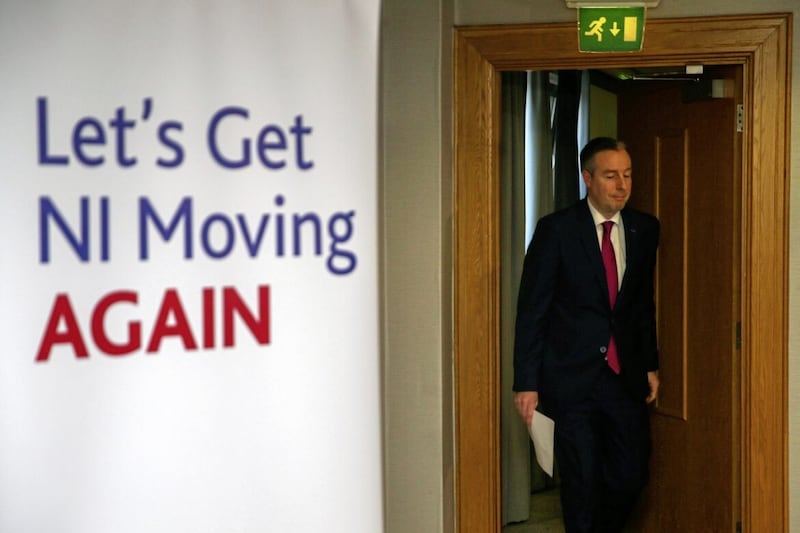SINCE he stepped down from frontline politics at the start of 2016, Peter Robinson has carefully rationed his public pronouncements.
This contrasts favourably with the approach of his successor as DUP leader and first minister, Arlene Foster. Since her defenestration she has sought to remain on the stage, if not the sidelines, for example through finding a home with the political flat earthers at GB News and fronting a curious Blethering with the Baroness event.
It is not just the comparative rarity of Mr Robinson's interventions which make them newsworthy. He was also the architect of the DUP's move from being the Paisleyite party of protest to a party of not simply power, but power-sharing. One does need to be a cheerleader for Mr Robinson to accept that he has been one of our most consequential political figures, and that his words continue to carry weight.
Read more:
If fulfilled, Leo Varadkar's Stormont funding pledge benefits everyone in Northern Ireland
Former DUP first minister Peter Robinson writes self-help book: 'Witty Putdowns and Clever Insults'
He is currently on a round of interviews to promote his new book Witty Putdowns and Clever Insults – a somewhat improbable endeavour for a figure hardly synonymous with comic repartee and banter – and has been sharing his assessment of the DUP's position.

The DUP has, of course, been boycotting Stormont since February 2022 in a completely unjustifiable huff over the NI Protocol and this year's Windsor Framework. This entirely cynical course of action has weakened public services, brought fringe and unelected loyalist voices to the fore and entirely failed to achieve whatever Sir Jeffrey Donaldson confidently predicted it would.
It would be too much to expect Mr Robinson to agree with that, at least publicly. But he does seem to accept that the game is up.
"There’s a stage where unionists have to recognise that we really have pushed this one, we have got a good deal..." he told BBC Radio Ulster's Talkback programme, adding that the assembly is the place to argue for "the rest that we do want".
He believes a deal has to be done within weeks, warning: "I don’t think you can go beyond the turn of the year without the government having to look at some other way of governing Northern Ireland."
Mr Robinson's comments chime with Sir Jeffrey's party conference speech, suggesting a degree of choreography, although figures like the perpetually recalcitrant Sammy Wilson sound less enthusiastic.
A return to Stormont has always been inevitable for the DUP, but it does not reflect well on Sir Jeffrey's position that he appears to need Mr Robinson to help sell a deal to his divided party.
That does not bode well for the durability and stability of the restored institutions, particularly as the DUP still needs to come to terms with a new dispensation that has Sinn Féin as the north's largest party.







